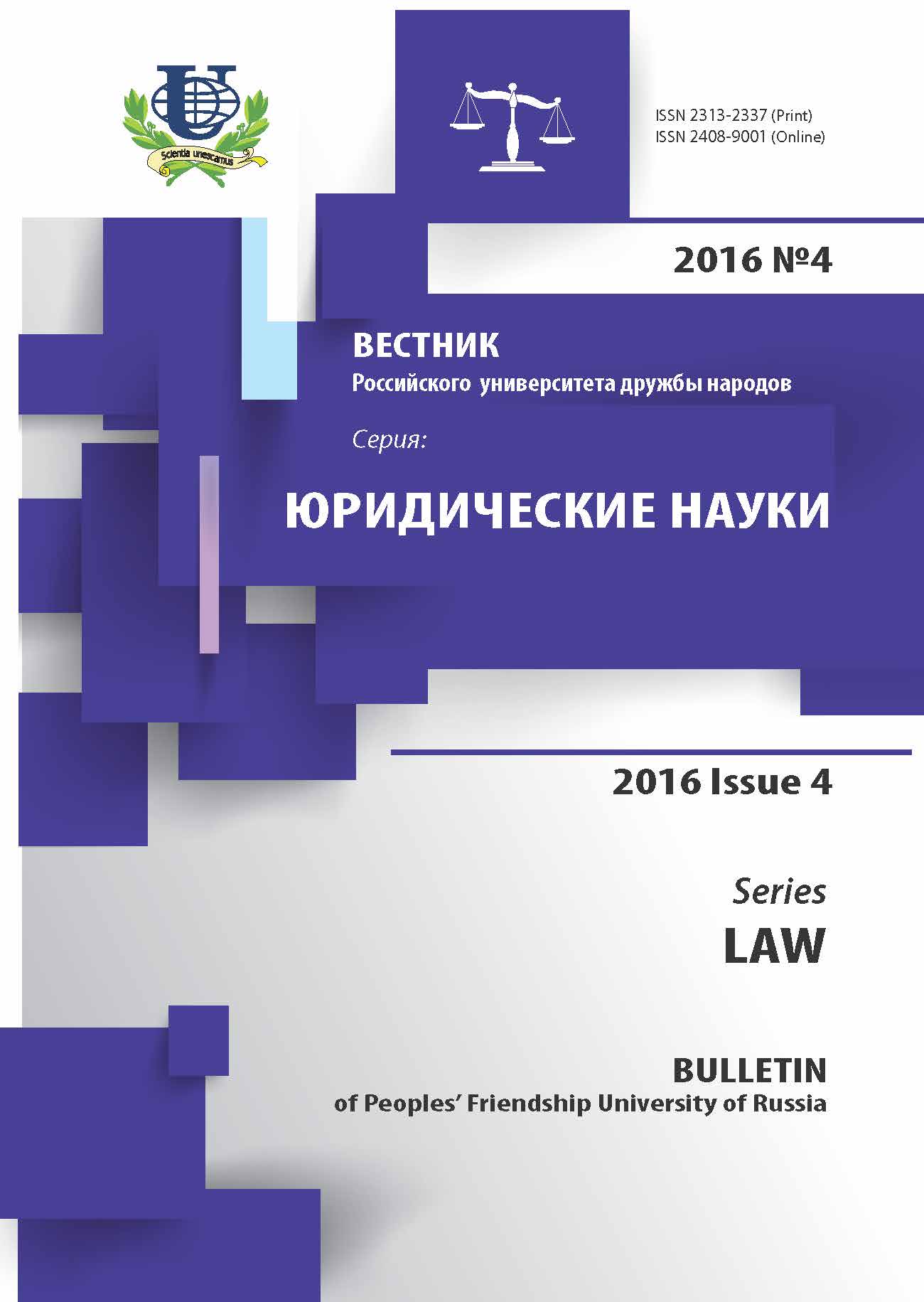The Nuremberg Trials and The Principle of Respect for The Practice of the European Court of Human Rights
- Authors: Nikolaev A.M1
-
Affiliations:
- Peoples’ Friendship University of Russia
- Issue: No 4 (2016)
- Pages: 61-81
- Section: Articles
- URL: https://journals.rudn.ru/law/article/view/15129
- ID: 15129
Cite item
Full Text
Abstract
In 1946, the Nuremberg trials established the legal end of the Second World War. Gross and massive violations of human rights in Europe were a powerful incentive to the establishment of effective guarantees for fundamental human rights at the regional level (the Council of Europe). International legal obligations of the Russian Federation in connection with its participation in the European Convention for the Protection of Human Rights and Fundamental Freedoms require the state of execution of judgments of the European Court of Human Rights issued in respect of the Russian Federation. Human rights values forming the basis of the Constitution of the Russian Federation and the European Convention for the Protection of Human Rights and Fundamental Freedoms do not come into conflict with each other in the force of constitutional provisions which cannot be opposed to each other. The implementation of the European Convention for the Protection of Human Rights and Fundamental Freedoms as an international treaty could not be accompanied by the discretion of the state in relation to the binding nature of judgments of the European Court of Human Rights. Attitude towards the legal positions of the European Court of Human Rights should be based on the principle of respect for the practice of intergovernmental bodies for the protection of the rights and freedoms of the individual. First, the state recognized the jurisdiction of the intergovernmental body on protection of the rights and freedoms of the individual, obliged to consider the practice of this body in the matter in respect of the state concerned. Second, a state may not plead impossibility of performance of decisions of the intergovernmental body for the protection of the rights and freedoms of the individual, issued upon review of individual complaints, or otherwise ignore the undertaken international obligations. At the same time, admitting the possibility of state interference in the exercise of those rights and freedoms, the European Convention for the Protection of Human Rights and Fundamental Freedoms requires the state some discretion to regulate the rights and freedoms of the individual. Evolution of the European Court of Human Rights as an institution of international protection of the rights and freedoms of the individual should be based on the recognition by member States of the Council of Europe the principle of respect for the practice of the European Court of Human Rights.
Keywords
the Nuremberg trials, the Charter of the International Military Tribunal, human rights, intergovernmental body on protection of the rights and freedoms of the individual, the Statute of the Council of Europe, the European Convention for the Protection of Human Rights and Fundamental Freedoms, the European Court of Human Rights, execution of judgements of the European Court of Human Rights, the Constitutional Court of the Russian Federation, the principle of respect for the practice of the European Court of Human Rights
About the authors
Andrei M Nikolaev
Peoples’ Friendship University of Russia
Email: nikolaev_am@pfur.ru
Law Institute 6, Miklukho-Maklaya st., Moscow, Russia, 117198
References
Supplementary files















